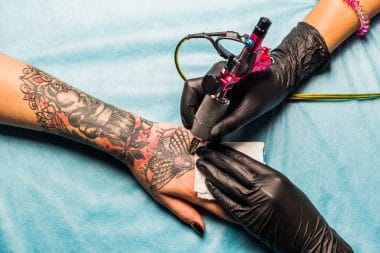Everybody deals with acne breakouts from time to time, but it’s hard to tell if your latest battle with zits requires medical attention or just a trip to the drug store for some face wash. Fortunately, there are four easy-to-spot signs that your acne needs a dermatologist’s touch.
- Acne Is Affecting Your Mood
It might sound strange, but persistent acne can contribute to serious mental health disorders. According to a study in the British Journal of Dermatology, serious cases of acne are correlated with anxiety disorders, depression and other emotional problems.
If your acne is affecting your social life or making it difficult for you to concentrate in school, it’s time to talk with a dermatologist. Don’t let acne make you feel uncomfortable in your own skin–talk to a doctor about treatment options before it develops into a psychological disorder.
- Over-the-Counter Medicines Aren’t Working
If you’ve been trying out every over-the-counter acne treatment you can find and nothing seems to be working, it’s time to see a doctor about your condition. It’s normal for some OTC treatments to work poorly for some people, since everyone has different skin chemistry. However, if you’ve tried several different brands and treatment types, and you aren’t seeing any progress, it’s time to get a prescription.
Prescription treatments work differently than OTC medicines. Most of them target the bacteria that cause blemishes, while OTC treatments usually just treat the symptoms.
- You’ve Got “Cystic” Acne Deep Under the Skin
Cystic acne is characterized by hard nodules deep under the skin and is impossible to control without prescription medication. Typically, cystic acne feels like a small lump of tissue buried in your face. It may not even look like a blemish on the surface, but it will be sensitive to the touch.
Cystic acne is a different animal from normal breakouts. It’s an infection deep within the skin, and simple remedies and hygiene regiments won’t do anything to stop it. Even worse, this type of acne is most likely to result in permanent scarring. If you’ve noticed cystic acne, get to a doctor right away.
- Your Pimples Are Sore to the Touch
It might not feel good to poke or prod zits, but it shouldn’t be excruciating. If your acne is painfully sensitive to touch, it’s a sign of an underlying infection. Deep skin infections aren’t just cosmetic problems–they pose serious threats to your health. If your acne is painful, you should consult a physician.
You don’t have to suffer your acne in silence. If you have experienced any of these four symptoms, your acne isn’t likely to cure itself. Go talk with a dermatologist about what you can do.







